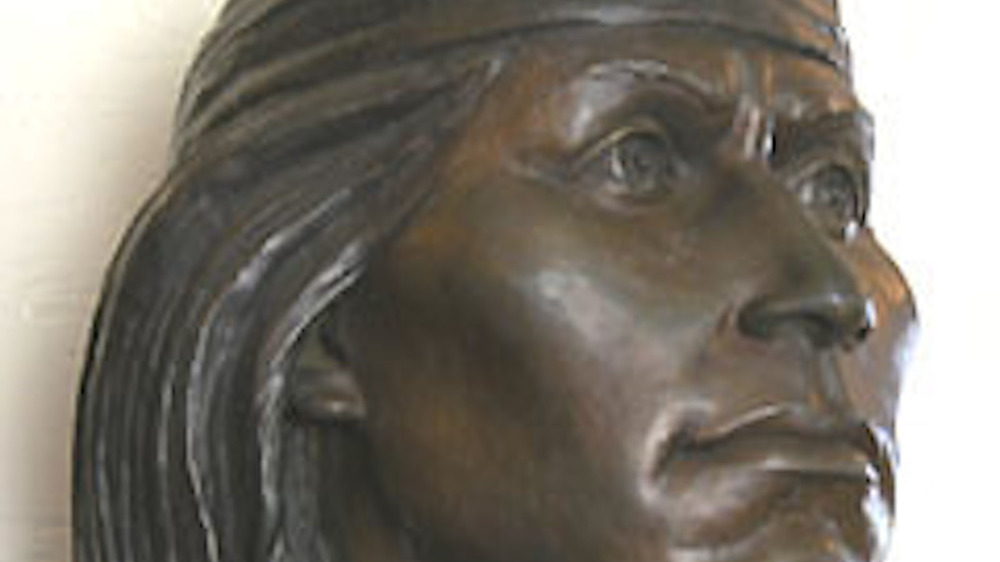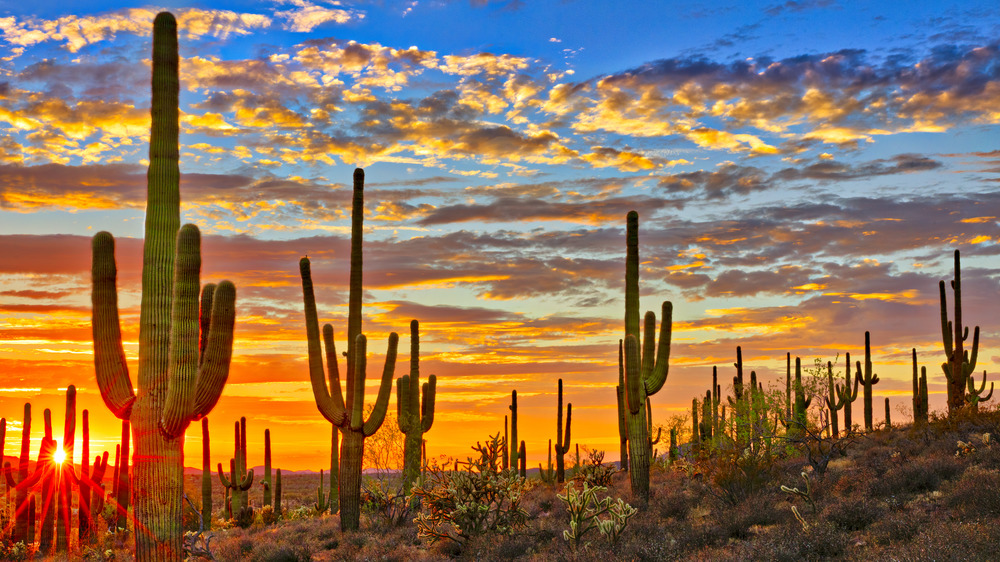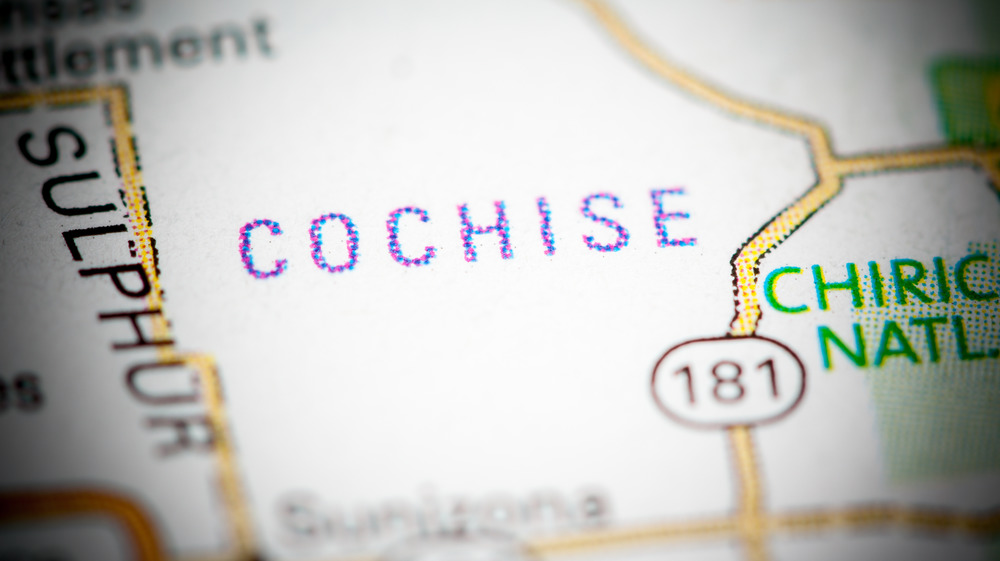Betrayal Led To A Decade Of Warfare With The Apache
The life and death of Apache Chief Cochise would be one of the defining moments of the tribal group's history. The Apache lived and spanned throughout what's modern-day Arizona, Texas, Colorado, New Mexico, and Northern Mexico. During westward expansion, white settlers and Native Americans across the U.S. were routinely at war with each other. This meant the Apache found themselves being pushed and challenged by not only by American soldiers, but Mexicans, too.
Cochise himself headed the Chiricahua band of the Apache, who lived mostly in southern Arizona and northern Mexico. (Geronimo was leader of the Bedonkohe Apache, one of the Chiricahua Apache bands, per Biography.) And the Apache were no fans of the settler expansion that invaded their land and livelihoods. As a result, for much of the mid-1800s he firmly defended Apache territory. Cochise was a trained and skilled warrior. He was known for leading violent and successful raids — so much that he caused fear and distress for settlers in Mexico and the U.S.
One of the many incidents of the constant warring between Native Americans and settlers, was the kidnapping and holding of captives.
The kidnapping in Arizona that set it off
A pivotal moment in the history of Cochise took place in 1861, when Cochise and his band of Apache were accused of raiding an Arizona ranch and kidnapping the 12-year-old son of Irish rancher, John Ward, according to History. The boy's name was Felix Ward (sometimes reported as Felix Tellez), and he was actually the adopted son of Ward and his common-law wife.
It was a different band of Apache who had captured Ward's son, but that didn't matter to the white authorities. Cochise was the infamously known and feared raider, so he was the assumed culprit. In an effort to find the boy, Ward called on the armed forces to intervene and find Felix. What would happen next was only the beginning and in what led to a 10-year war between the Apache and the U.S.
The military response to the kidnapping was led by Lieutenant George Bascom. In what is now known as "The Bascom Affair," the lieutenant sent an invitation to Cochise for a friendly get-together in February of 1861.
An invitation gone sour
A trusting Cochise was unaware of the kidnapping situation — his band hadn't been involved — and agreed to meet, under the impression that this meeting would be an honorable one. He brought his family and closest Apache members along with him, per Desert USA. Tragically, it was not. Bascom had other motives.
Cochise was questioned about the raid and kidnapping that had taken place at Ward's ranch. The chief had been lured to the meeting under false pretenses and was then betrayed. He and his party were arrested and held for the kidnapping. But Cochise would escape and flee the scene.
In a series of failed peace attempts and trades of captives from both sides, Cochise and Bascom's men would be on the attack. Cochise and the Chiricahua Apache destroyed the homes and took the lives of white settlers. War would continue until 1872, and Cochise claimed victory throughout. To put an end to the conflict, the U.S. government, desperate for peace, offered Cochise the Chiricahua Apache Reservation in southern Arizona in exchange for stopping the attacks. Cochise agreed. He died at the reservation not long after agreeing to peace, in 1874.
Mickey Free, formerly Felix Ward, would reappear about a decade after Cochise's death and reveal himself to be an Apache scout. He also related that he had been captured by a group of Western Apache.


